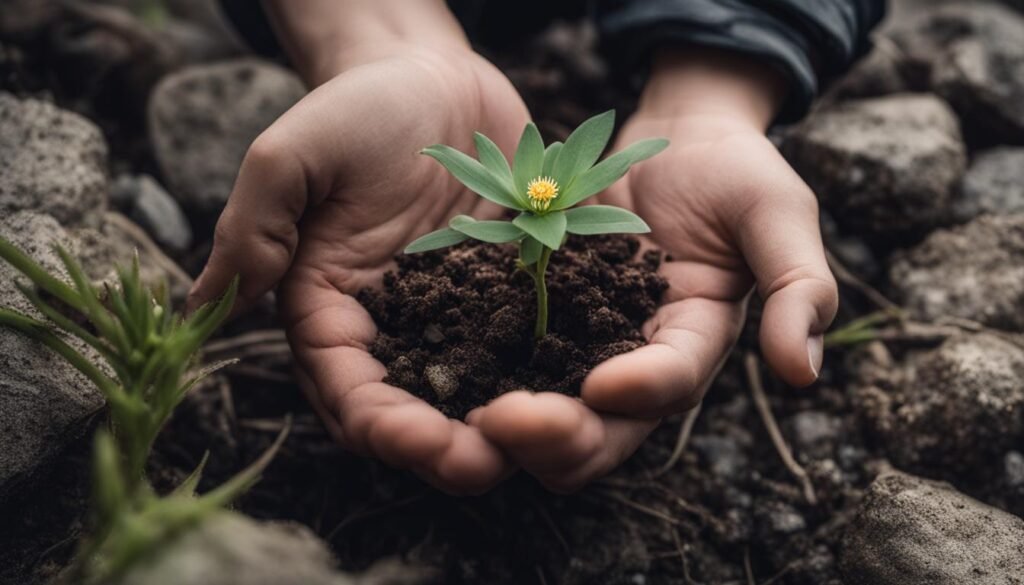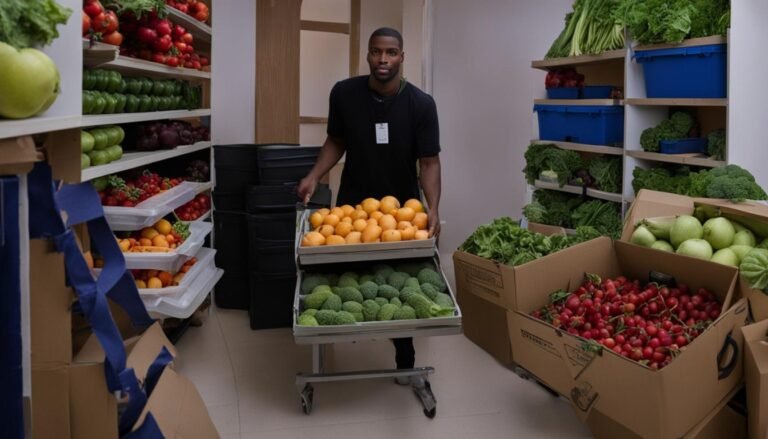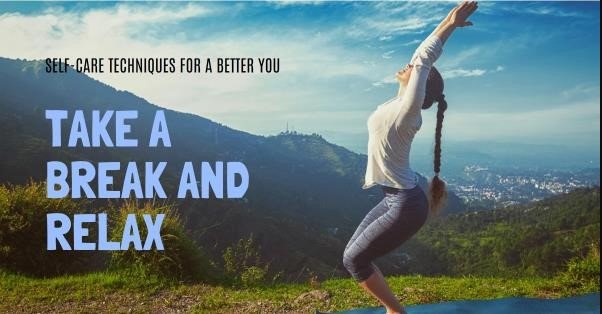How To Live a Good Life By Making These 8 Conscious Choices
I believe that living a good life is within everyone’s reach. It’s not about luck or circumstance, but rather the choices we make each day. By embracing conscious living, mindfulness, self-improvement, and personal growth, we can shape our lives in a way that brings happiness and fulfillment.
Conscious living is about being intentional and aware of our actions and decisions. It’s about making choices that align with our values and contribute to our overall well-being. By cultivating a positive mindset, adopting a healthy lifestyle, and engaging in intentional living, we can create a life that brings us joy and satisfaction.
In this article, I will share eight specific conscious choices that you can make to enhance your life and promote overall well-being. These choices are rooted in self-awareness, compassion, and a commitment to personal growth. By incorporating them into your daily life, you can unlock the full potential of living a good life.
- Make conscious choices that align with your values and contribute to your well-being.
- Cultivate a positive mindset and adopt a healthy lifestyle.
- Practice mindfulness and embrace self-improvement to foster personal growth.
- Engage in intentional living to create a life filled with joy and satisfaction.
- Remember that living a good life is an ongoing process, and it’s important to continuously explore and adapt your choices and practices.
Let Go of the Past
Letting go of the past is a powerful choice that can transform your life and pave the way for personal growth and happiness. When we hold onto past hurts, regrets, and negative emotions, we carry a heavy burden that weighs us down and prevents us from moving forward. But by releasing these emotional attachments and embracing forgiveness, we can create space for new experiences and opportunities.
Forgiveness is not about condoning or excusing the actions of others, but rather about freeing ourselves from the pain and resentment that keeps us stuck in the past. It is a gift we give ourselves, allowing us to heal and move forward with our lives. As I reflect on my own journey, I have come to realize that forgiveness is a process – it takes time, patience, and self-compassion. But with each step, I have felt a sense of liberation and a renewed sense of freedom.
“Forgiveness does not change the past, but it does enlarge the future.” – Paul Boese
By letting go of the past, we also allow ourselves to fully embrace the present moment. The present is where life happens – it is where we have the power to make choices and shape our future. When we focus too much on the past, we miss out on the beauty and opportunities that surround us in the here and now. It is in the present moment that we can truly experience joy, gratitude, and personal growth.
The Power of Letting Go
Letting go of the past requires courage and a willingness to confront our own fears and insecurities. It is not always easy, but the rewards are immeasurable. When we release our attachment to the past, we open ourselves up to new possibilities and allow room for personal growth and transformation. We become more resilient, adaptable, and open-minded, ready to embrace whatever the future holds.
So, I encourage you to take a moment to reflect on your own life. What past experiences, grudges, or regrets are holding you back? Are there people you need to forgive, including yourself? By releasing the past and practicing forgiveness, you can break free from the chains that bind you and step into a future filled with joy, fulfillment, and endless possibilities.
Don’t Take Things Too Personally
In our journey towards living a good life, it’s important to remember that not everything is about us. Taking things too personally can be detrimental to our emotional well-being and overall happiness. When we internalize every comment or action directed towards us, we allow others to define our worth and control our emotions. It’s time to break free from this cycle and choose not to take things personally.
Resilience: Developing resilience is key to navigating challenging situations without allowing them to affect us deeply. When we cultivate resilience, we strengthen our ability to bounce back from setbacks and maintain our emotional well-being.
Perspective: Maintaining perspective is crucial in understanding that people’s actions and words are often a reflection of their own experiences and beliefs. It’s essential to remind ourselves that these comments or actions are not a personal attack, but rather a reflection of the other person’s own struggles and perceptions.
Self-esteem: Nurturing our self-esteem plays a vital role in not taking things personally. When we have a healthy sense of self-worth, we can recognize that our value does not depend on others’ opinions or actions. By building our self-esteem, we empower ourselves to choose how we respond to external stimuli and protect our inner peace.
“Don’t let the opinions of others define you. Remember, you are the only person responsible for your happiness and self-worth.”
Table: Practicing Emotional Detachment
| Steps to Practice Emotional Detachment | Benefits of Emotional Detachment |
|---|---|
| 1. Reflect on your triggers and patterns of taking things personally. | 1. Reduced stress and anxiety |
| 2. Practice self-awareness and mindfulness to observe your reactions. | 2. Improved emotional well-being |
| 3. Challenge negative self-talk and reframe situations from a different perspective. | 3. Enhanced self-esteem |
| 4. Practice empathy and consider the other person’s point of view. | 4. Stronger relationships and improved communication |
| 5. Focus on your own growth and self-care. | 5. Greater peace of mind and happiness |
By practicing emotional detachment, we can choose not to take things personally and protect our emotional well-being. Remember, what others say or do is a reflection of them, not you. Embrace resilience, maintain perspective, and nurture your self-esteem to cultivate inner peace and live a good life.
Choose Less Over More
Living in a world that constantly promotes the acquisition of more can lead to a never-ending pursuit of material possessions and a cluttered mind. However, choosing less over more is a powerful way to simplify your life, prioritize what truly matters, and find contentment.
Embracing minimalism is a key aspect of choosing less. Minimalism is not about depriving yourself of things, but rather about consciously deciding what adds value to your life and letting go of the rest. By decluttering your physical space, you create a calmer environment that allows you to focus on what truly brings you joy.
But it’s not just about decluttering your physical surroundings; it’s also about decluttering your mental and emotional spaces. Simplifying your commitments, prioritizing your time and energy, and saying no to things that don’t align with your values and goals can free up mental space and create a sense of clarity and purpose. By prioritizing what truly matters to you, you can live a more intentional and fulfilling life.
Benefits of Choosing Less
Choosing less over more comes with a multitude of benefits that contribute to a greater sense of contentment. By embracing minimalism, simplifying your life, and decluttering your physical and mental spaces, you can experience:
- Reduced stress and overwhelm
- Enhanced focus and productivity
- Greater financial freedom
- Better mental and emotional well-being
- Increased appreciation for the things that truly matter
Remember, choosing less is a journey, and it’s important to be patient with yourself as you navigate the process. Start small by letting go of one item, one commitment, or one negative thought that no longer serves you. With each choice to choose less, you create space for more meaningful experiences and a greater sense of contentment in your life.
Appreciate What You Have
In today’s fast-paced and constantly evolving world, it’s easy to get caught up in the pursuit of more. We often find ourselves longing for what we don’t have, rather than appreciating the abundance that already surrounds us. However, cultivating an attitude of gratitude and appreciating what you have is a powerful practice for living a good life. It allows you to shift your focus from scarcity to abundance, from negativity to positivity, and from dissatisfaction to contentment.
Practicing gratitude on a daily basis can bring about significant changes in your mindset and overall well-being. It helps you recognize and acknowledge the blessings, big and small, that exist in your life. It allows you to see the beauty in the present moment and cherish the relationships, experiences, and opportunities that enrich your journey.
When you adopt an abundance mindset and practice gratitude, you open yourself up to a world of possibilities and invite more positivity and happiness into your life. It’s like a ripple effect, where your appreciation for what you have attracts more things to be grateful for. So, take a moment each day to pause, reflect, and express gratitude for the abundance that fills your life. Whether it’s through a gratitude journal, verbal affirmations, or acts of kindness, the practice of appreciation will undoubtedly enhance your overall well-being and contribute to a truly good life.

Table: The Power of Gratitude
| Benefits of Gratitude | Ways to Practice Gratitude |
|---|---|
|
|
“Gratitude turns what we have into enough and more. It turns denial into acceptance, chaos into order, confusion into clarity… It turns problems into gifts, failures into successes, the unexpected into perfect timing, and mistakes into important events. Gratitude makes sense of our past, brings peace for today and creates a vision for tomorrow.” – Melody Beattie
Mindfulness: Embracing the Present Moment for Peace of Mind
In today’s fast-paced world, it’s easy to find ourselves constantly worrying about the future. The uncertainty of what lies ahead can create anxiety and rob us of the joy and beauty of the present moment. However, by practicing mindfulness and embracing the here and now, we can find peace of mind and live a more fulfilling life.
Mindfulness is the practice of intentionally bringing our attention to the present moment without judgment. It involves fully experiencing and accepting our thoughts, emotions, and sensations as they arise, without getting caught up in them. By cultivating mindfulness, we can become more aware of our thoughts and reactions, allowing us to respond to life’s challenges with greater clarity and compassion.
Embracing mindfulness doesn’t mean ignoring or denying the uncertainty that exists in our lives. It means acknowledging and accepting that uncertainty is a natural part of the human experience. By shifting our focus from worrying about the future to fully experiencing the present moment, we can find inner peace and navigate through life’s uncertainties with a sense of calm and resilience.
| Benefits of Mindfulness | How to Practice Mindfulness |
|---|---|
|
|
By embracing mindfulness, we can learn to let go of worries about the future and find peace of mind in the present moment. It is a powerful tool that enables us to fully experience life, savoring each moment as it comes. So, let us practice mindfulness, embracing the certainty of the present, and unlocking the peace and fulfillment that resides within.
Realize That You Are Enough
Self-acceptance, self-worth, self-love, confidence, and self-empowerment are essential components of living a good life. It begins with recognizing that you are enough just as you are. You possess unique qualities, talents, and strengths that make you who you are. Embrace your uniqueness and celebrate the person you have become.
Building self-acceptance starts with acknowledging your imperfections and accepting them as a part of your journey. Understand that no one is perfect, and it is through our flaws that we learn and grow. By accepting yourself, flaws and all, you can cultivate a sense of self-worth that radiates from within.
Self-love is crucial for living a fulfilling life. Treat yourself with kindness, compassion, and forgiveness. Take care of your physical, emotional, and mental well-being. Surround yourself with positive influences and eliminate toxic relationships. When you prioritize self-love, you create a solid foundation for confidence and self-empowerment.
Confidence is the belief in your abilities and qualities. It is the fuel that propels you towards your dreams and goals. Nurturing confidence requires stepping out of your comfort zone, taking risks, and embracing challenges. Celebrate your achievements, no matter how small, and learn from setbacks. With each step forward, your confidence will grow, empowering you to reach new heights in life.
Remember, you are enough. You have the power within you to create the life you desire. Embrace self-acceptance, nurture self-worth, practice self-love, and build confidence. When you realize that you are enough, you unlock the door to a life filled with limitless possibilities and true fulfillment.

Table: Cultivating Self-Empowerment
| Practices | Description |
|---|---|
| Positive Affirmations | Use positive statements to reinforce self-belief and overcome self-doubt. |
| Visualization | Imagine yourself succeeding in various aspects of life to enhance confidence and motivation. |
| Journaling | Reflect on your strengths, achievements, and goals to foster self-awareness and gratitude. |
| Self-Care | Prioritize activities that nourish your mind, body, and soul, promoting overall well-being. |
| Setting Boundaries | Establish clear boundaries to protect your energy and prioritize your needs. |
Growth Mindset and the Power of Personal Development
When it comes to living a good life, one of the most valuable choices you can make is to embrace a growth mindset. Having a growth mindset means believing in your ability to learn, grow, and evolve throughout your life. It is the willingness to step outside of your comfort zone, be open to new experiences, and continuously invest in your personal development.
Being open-minded is a key component of a growth mindset. It means being receptive to different ideas, perspectives, and possibilities. By staying curious and embracing a sense of wonder, you create opportunities for learning and growth. Approach life with a willingness to explore new paths, challenge your beliefs, and expand your horizons. This mindset not only enhances your personal development but also enriches your overall experience of life.
“The only way that we can live, is if we grow. The only way that we can grow is if we change. The only way that we can change is if we learn. The only way we can learn is if we are exposed. And the only way that we can become exposed is if we throw ourselves out into the open.”
Personal development is a lifelong journey of self-discovery and growth. It involves consciously engaging in activities that foster your personal and professional growth, such as reading books, attending workshops, seeking mentorship, or acquiring new skills. By investing in your personal development, you equip yourself with the tools and knowledge to navigate life’s challenges, seize opportunities, and become the best version of yourself.
The Power of Personal Development
Personal development empowers you to take control of your life and manifest your dreams and goals. It enhances your self-awareness, enabling you to identify your strengths, weaknesses, and areas for improvement. Through personal development, you can cultivate essential qualities such as resilience, self-confidence, and adaptability, which are vital for success and fulfillment.
Remember, personal development is not a one-size-fits-all approach. It is a deeply personal and unique journey that aligns with your passions, values, and aspirations. By embracing a growth mindset, staying open-minded, and actively pursuing personal development, you open the doors to endless possibilities and create a life of purpose, fulfillment, and joy.
Choose Kindness
In our journey to live a good life, one of the most powerful choices we can make is to choose kindness. Kindness is a virtue that has the ability to transform not only our own lives but also the lives of those around us. By practicing kindness, we can cultivate compassion, empathy, positive relationships, and a deep sense of connection with others.
Kindness is the act of showing understanding, respect, and care towards others. It involves putting ourselves in someone else’s shoes and offering support and love without expecting anything in return. When we choose kindness, we create a ripple effect of goodness that spreads far and wide.
Being kind is not always easy, especially in the face of adversity or when dealing with difficult people. However, it is during these challenging moments that kindness becomes even more important. By responding with kindness instead of anger or negativity, we can break the cycle of negativity and create a more harmonious and compassionate world.
“No act of kindness, no matter how small, is ever wasted.” – Aesop
Benefits of Choosing Kindness
Choosing kindness not only benefits others but also has a profound impact on our own well-being. When we practice kindness, our brains release hormones such as dopamine and oxytocin, which are associated with feelings of happiness and fulfillment. Kindness also boosts our self-esteem and strengthens our relationships, leading to a greater sense of connection and belonging.
- Creates positive relationships: Acts of kindness foster positive relationships and create a sense of trust and camaraderie.
- Enhances empathy and compassion: Choosing kindness helps us develop a deeper understanding and empathy towards others.
- Boosts overall well-being: Practicing kindness improves our mental and emotional well-being, reducing stress and increasing happiness.
- Inspires others: When we choose kindness, we inspire others to do the same, creating a ripple effect of positivity.
So let us choose kindness in our thoughts, words, and actions every day. By spreading kindness, we can make a difference in the world and create a life filled with love, compassion, and genuine connections.

More Tips on How to Live a Good Life
Living a good life involves making conscious choices and implementing personal growth practices that prioritize self-care, gratitude, and healthy habits. These additional tips can further enhance your journey towards a fulfilling and meaningful life.
1. Prioritize Self-Care
Self-care is essential for maintaining overall well-being. Make time for activities that nourish your body, mind, and soul. Engage in activities like exercise, meditation, or pursuing hobbies that bring you joy and relaxation. Taking care of yourself allows you to show up fully in all areas of your life and promotes a positive mindset.
2. Keep a Gratitude Journal
Practicing gratitude is a powerful way to shift your focus towards the positive aspects of your life. Start a gratitude journal and regularly write down things that you are thankful for. This simple practice helps you cultivate an abundance mindset and promotes feelings of happiness and contentment.
3. Cultivate Healthy Habits
Healthy habits contribute to a good life by improving your physical and mental well-being. Focus on nourishing your body with nutritious food, getting enough sleep, and staying hydrated. Incorporate regular exercise into your routine to boost your energy levels and enhance your mood. By prioritizing your health, you lay the foundation for a vibrant and fulfilling life.
| Personal Growth Practice | Description |
|---|---|
| Meditation | Engaging in regular meditation practice helps calm the mind, reduce stress, and increase self-awareness. It allows you to cultivate present-moment awareness and find inner peace. |
| Journaling | Writing in a journal is a powerful tool for self-reflection and personal growth. It helps you gain clarity, process emotions, and explore your thoughts and feelings more deeply. |
| Lifelong Learning | Continuously seek knowledge and expand your horizons through reading, attending workshops or courses, or engaging in intellectually stimulating conversations. Embrace a growth mindset and nurture a thirst for knowledge. |
“The journey of personal growth is a lifelong process. Embrace the opportunity to learn and grow every day, and you’ll unlock the full potential of a good life.” – Anonymous
By incorporating these conscious choices, personal growth practices, and self-care habits into your daily life, you can create a solid foundation for living a good life. Remember, it’s the small actions and choices that accumulate over time and ultimately shape the quality of your life. Embrace these tips and continue to explore what works best for you, adapting your choices and practices along the way.
Conclusion
Living a good life is a journey of conscious living, personal growth, and self-discovery. By making the eight conscious choices explored in this article, I can unlock the potential of a good life filled with happiness, fulfillment, and personal growth.
Each choice I make, from letting go of the past to appreciating what I have, has the power to transform my life and contribute to my overall well-being. It is through these choices that I cultivate a positive mindset, embrace personal growth, and create a life that brings me joy and satisfaction.
I understand that living a good life is an ongoing process, and I am committed to continuously exploring and adapting my choices and practices. Through conscious living, I can navigate life’s ups and downs with resilience and grace, and ultimately create the life I desire.
So, let us embark on this journey of conscious living together, and unlock the full potential of a good life – a life filled with happiness, fulfillment, and boundless personal growth.
FAQ
What is conscious living?
Conscious living is the practice of making intentional choices that lead to happiness and fulfillment in life. It involves being aware of our actions, thoughts, and emotions and making choices that align with our values and goals.
How can I let go of the past?
Letting go of the past involves practicing forgiveness, releasing negative emotions, and embracing the present moment. By accepting what has happened and focusing on the present, you can free yourself from the burdens of the past and create space for new experiences.
Why is not taking things personally important?
Taking things personally can lead to unnecessary stress and negatively impact your emotional well-being. By understanding that people’s actions are often a reflection of their own experiences and beliefs, you can preserve your inner peace and maintain a positive self-image.
How can choosing less over more enhance my life?
Choosing less over more involves embracing minimalism, simplifying your life, and decluttering your physical and mental spaces. By prioritizing what truly matters to you and focusing on contentment rather than material possessions, you can create a balanced and meaningful life.
How can practicing gratitude enhance my life?
Practicing gratitude involves cultivating an attitude of appreciation for what you have. By focusing on the positives in your life and adopting an abundance mindset, you can shift your perspective and experience greater happiness and fulfillment.
How can mindfulness help me stop worrying about the future?
Mindfulness is the practice of being present in the moment. By accepting the uncertainty of life and focusing on what you can control in the present moment, you can let go of worries about the future and find peace of mind.
Why is self-acceptance important for living a good life?
Recognizing that you are enough just as you are is crucial for cultivating confidence and a positive self-image. By embracing your uniqueness, celebrating your strengths, and loving yourself unconditionally, you can live authentically and confidently pursue your dreams and goals.
How can being open to new opportunities enhance my life?
Being open to new opportunities involves cultivating a growth mindset, embracing open-mindedness, and nurturing your curiosity. By stepping outside of your comfort zone and being willing to learn and evolve, you can experience personal development and continuous growth.
Why is choosing kindness important for living a good life?
Choosing kindness in your interactions with others fosters positive relationships, creates a sense of connection, and contributes to a more harmonious world. By showing kindness to others and practicing self-compassion, you can make a positive impact on the lives of others and experience greater joy and fulfillment.
What are some additional tips for living a good life?
Some additional tips include prioritizing self-care, engaging in personal growth practices such as meditation or journaling, nurturing meaningful relationships, fostering a positive mindset, and cultivating healthy habits. Find what resonates with you and continuously explore and adapt your choices and practices.







